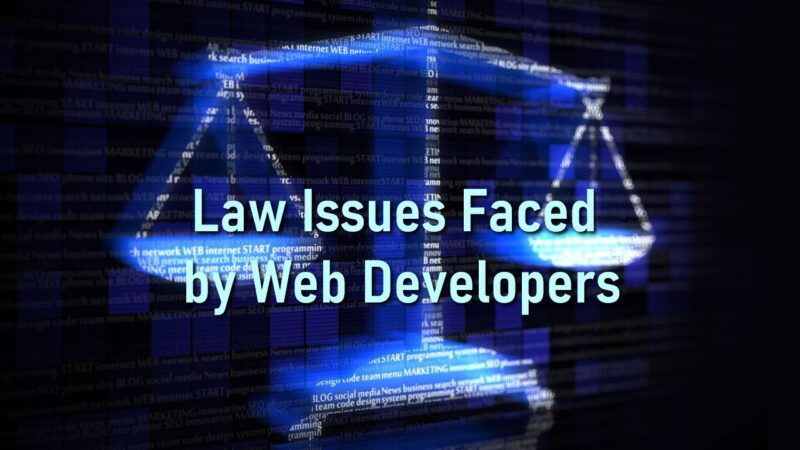Nowadays, web developers find themselves at the forefront of technological advancements. While they focus on creating innovative and user-friendly websites and applications, they must also navigate a complex legal environment. From intellectual property concerns to privacy issues, web developers face a range of legal challenges that impact their work. In this article, we will explore five key law issues encountered by web developers. For expert legal guidance tailored to the unique challenges of the digital landscape, consider consulting experienced professionals at https://www.jaeleelaw.com/.
Intellectual Property and Copyright Infringement
One of the primary legal challenges for web developers is navigating the intricate web of intellectual property laws. Creating original and innovative content is at the core of web development, but ensuring that the work does not infringe on existing copyrights is crucial. Developers need to be vigilant about using open-source code, images, or other media assets, as failure to do so can lead to copyright infringement claims.

In addition, understanding licensing agreements for third-party tools and libraries is essential. Ignorance of licensing terms can result in unintended legal consequences. Web developers must diligently adhere to copyright laws, seek permission when necessary, and give proper attribution to avoid legal disputes.
Privacy and Data Protection
With the increasing emphasis on data-driven technologies, web developers are tasked with handling sensitive user information responsibly. Privacy laws, such as the General Data Protection Regulation (GDPR) in Europe and the California Consumer Privacy Act (CCPA) in the United States, impose strict requirements on the collection, storage, and processing of personal data.

Developers must integrate robust security measures into their applications to safeguard user data. They also need to ensure compliance with privacy regulations by obtaining explicit consent for data collection and clearly communicating how user information will be used. Failure to adhere to these regulations can result in severe penalties and legal repercussions.
Accessibility and Compliance with Disability Laws
Web developers must also consider the accessibility of their websites and applications to ensure they are inclusive for users with disabilities. Various countries have enacted laws, such as the Americans with Disabilities Act (ADA) in the United States and the Equality Act in the United Kingdom, requiring websites to be accessible to individuals with disabilities.

Ensuring compliance with these laws involves incorporating features such as alternative text for images, keyboard navigation, and screen reader compatibility. Failure to make websites accessible may lead to legal action, impacting a developer’s reputation and potentially resulting in fines or penalties.
Contractual Disputes
Contracts are an integral part of the web development process, governing relationships between developers, clients, and third-party vendors. However, disputes often arise over unclear terms, scope changes, or project delays. Web developers must carefully draft and review contracts to avoid ambiguity and set realistic expectations.
Clear communication and documentation throughout the development process are crucial to preventing contractual disputes. Developers should outline project timelines, deliverables, payment terms, and dispute resolution mechanisms in contracts. Resolving conflicts through mediation or arbitration can be less costly and time-consuming than pursuing litigation.
Cybersecurity and Liability
As cyber threats continue to evolve, web developers face the challenge of securing their applications against potential breaches. In the event of a security incident, developers may be held liable for any resulting damages or data breaches. Understanding cybersecurity best practices and implementing robust security measures is essential to mitigate these risks.
Developers should conduct regular security audits, use encryption protocols, and stay informed about emerging threats. Additionally, having appropriate insurance coverage can help protect developers from financial liabilities in the event of a cybersecurity incident.
Web development is a dynamic field that constantly adapts to technological advancements and user needs. Navigating the legal landscape is an integral part of this process. By staying informed about intellectual property laws, privacy regulations, accessibility requirements, contractual best practices, and cybersecurity measures, web developers can minimize legal risks and ensure the success of their projects. The intersection of technology and law will continue to shape the web development landscape, emphasizing the importance of a proactive and legally informed approach.
